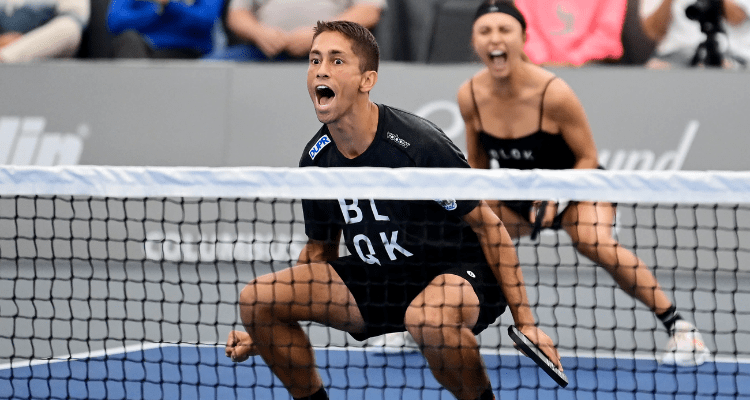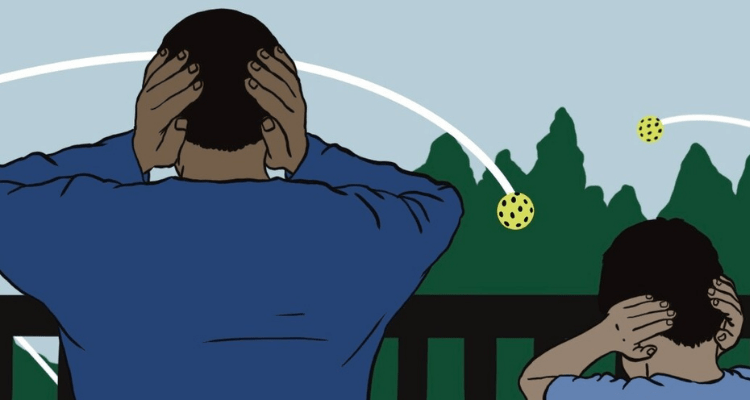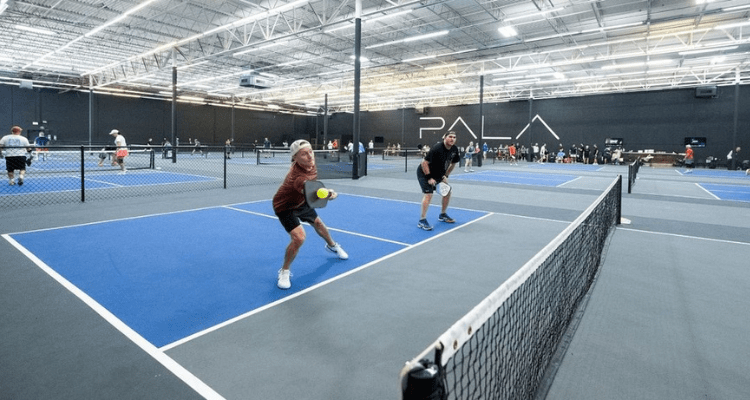In recent years, pickleball has become extremely popular, attracting players of all ages and abilities. Players must adhere to rules and guidelines for safety and fairness on the court, akin to other sports. In this unit, we’ll address a key question: What restrictions does pickleball impose? We’ll cover all aspects of the game, from basic rules to advanced strategies, ensuring you can fully enjoy its excitement.

What Can You Not Do in Pickleball?
Pickleball, a combination of tennis, badminton, and table tennis, has specific rules that players must follow to maintain the integrity of the game. Let’s explore seven essential rules that outline what you can’t do in pickleball.
Foot Faults:
One of the fundamental rules in pickleball is avoiding foot faults. Foot Faults occur when a player steps on or over the baseline or sideline while serving or during play. It’s crucial to maintain proper positioning to avoid penalties and maintain a fair game.
In pickleball, foot faults are considered infractions. They can lead to losing a serve or a point to the opposing team. Players must watch their foot placement to stay within court boundaries.
Double Bouncing:
Double bouncing occurs when the ball bounces twice on one side of the court before the opposing team can return it. This rule applies to both serve and regular play, emphasizing the importance of quick reflexes and agility on the court.
Players must be vigilant and anticipate the ball’s trajectory to avoid double bounces and maintain momentum during rallies. Failure to adhere to this rule can result in a point awarded to the opposing team.
Volleying from the Non-Volley Zone:
The Non-Volley Zone, also known as the kitchen, encompasses a seven-foot area adjacent to the net where players cannot volley the ball. Volleying refers to hitting the ball in the air without allowing it to bounce first.

To prevent players from gaining an unfair advantage near the net, authorities prohibit volleying from the non-volley zone. Violating this rule can result in a fault or loss of points, highlighting the importance of strategic positioning and shot selection.
Faulty Service:
In pickleball, the serve plays a crucial role in initiating each point. However, there are specific rules governing the service motion to ensure fairness and consistency. Faulty Service happens when a player doesn’t execute a proper serve, like serving underhand below the waist or stepping on or over the baseline during the serve.
To avoid faulty service, players should practice proper serving techniques and adhere to the guidelines outlined in the rulebook. Consistent and accurate serving is essential for maintaining control and gaining an advantage in the game.
Interfering with Opponent’s Shot:
Pickleball etiquette emphasizes sportsmanship and fair play on the court. Interfering with an opponent’s shot is a violation when a player obstructs or distracts them during a rally, hindering their ability to play the ball.
Players should refrain from making unnecessary movements or creating distractions that could disrupt their opponent’s focus. Respect for fellow players and adherence to the rules are essential for fostering a positive and enjoyable playing environment.
Carrying or Sliding the Paddle:
The paddle, which is the primary equipment used in pickleball, requires proper handling for effective shot execution. Carrying or Sliding the Paddle refers to any deliberate or excessive movement of the paddle that results in prolonged contact with the ball.
Players should aim to grip the paddle firmly and avoid any actions that could be interpreted as carrying or sliding. Consistent and controlled paddle movement is key to achieving accuracy and power in shots.

Unsportsmanlike Conduct:
Sportsmanship is a cornerstone of pickleball culture, promoting respect, integrity, and fair play among competitors. Unsportsmanlike Conduct encompasses a range of behaviors that violate the spirit of the game, including verbal abuse, cheating, and disrespectful conduct toward opponents or officials.
Players are expected to conduct themselves with dignity and respect at all times, regardless of the outcome of the match. Unsportsmanlike conduct can result in penalties, including point deductions or disqualification from the game.
FAQs:
Yes, hitting the ball out of the air, also known as volleying, is allowed in pickleball. However, there are restrictions on volleying from the non-volley zone near the net.
Stepping on the kitchen line, also known as the non-volley zone, results in a fault or loss of point, depending on when the infraction occurs.
Yes, players can execute lobs, which are high-arcing shots that travel over their opponents’ heads, in pickleball. Lobs can be an effective strategy for changing the pace of the game and putting pressure on opponents.
Yes, serving underhand is a common technique used in pickleball. Players have the option to serve underhand or overhand, provided they adhere to the rules governing the service motion.
During a rally, if a player hits another player with the ball, the point continues unless the struck player is outside the boundaries of the court when hit.
Yes, players can request timeouts during pickleball matches to regroup, strategize, or address any issues that may arise during play.
Conclusion:
In conclusion, understanding what you can’t do in pickleball is essential for players of all skill levels.
Players can ensure fair play, safety, and enjoyment on the court by following the rules outlined in this article. Whether you’re a beginner or a seasoned pro, practicing good sportsmanship and following the rules will improve your pickleball experience and create a positive playing environment.